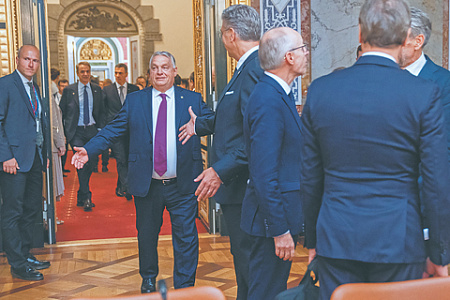
The European Union will finance a significant purchase of military drones for Ukraine using profits generated from frozen Russian assets, European Commission President Ursula von der Leyen announced. At an informal EU summit in Copenhagen, she revealed that half of a new €4 billion aid package for Kyiv, derived entirely from the proceeds of the immobilized funds, will be specifically allocated to acquiring unmanned aerial vehicles.
This move marks a bold new phase in the West’s strategy to support Ukraine’s defense, directly repurposing Russian-owned revenues for military hardware. “We all agree that Ukraine is our first line of defense, and therefore we must strengthen its military support,” von der Leyen stated, emphasizing the strategic investment in drones. The funds were officially disbursed on October 1st as part of the G7’s “Extraordinary Revenue Acceleration for Ukraine” (ERA) initiative, though the assets themselves are primarily held within the EU at the Belgium-based depository Euroclear.
The decision was made against a tense backdrop, as the summit was preceded by sightings of unidentified drones in Danish airspace. Many European leaders reportedly interpreted these flights as a psychological pressure tactic by Russia, intended to deter the EU from taking more assertive action with its frozen assets. Instead of being intimidated, the incident appeared to have strengthened the resolve of many participants to press forward with the plan.
The atmosphere also prompted a shift in tone from Hungarian Prime Minister Viktor Orbán, who is often seen as a dissenting voice on EU policy towards Russia. Orbán declared that his country would shoot down any foreign drones violating its airspace and urged other European nations to do the same. Despite this uncharacteristically hawkish stance, he simultaneously reaffirmed Hungary’s intention to block the next phase of Ukraine’s EU accession talks, underscoring the persistent political divisions within the bloc.
The EU leadership remains determined to overcome the Hungarian veto. A plan proposed by European Council President António Costa is set for further discussion on October 2nd, when Ukrainian President Volodymyr Zelenskyy is scheduled to personally attend the European Political Community summit in Copenhagen. The summit is expected to focus heavily on the bloc’s expansion and future security architecture, with Ukraine’s integration as a central theme.
